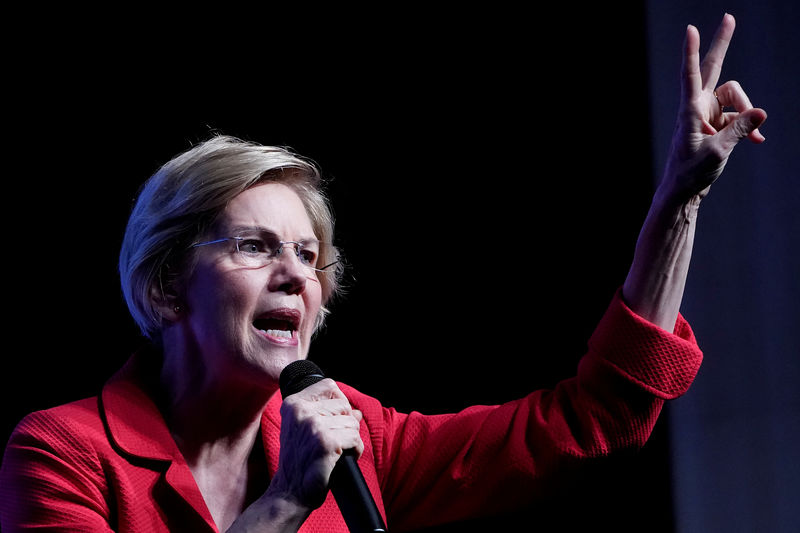By Amanda Becker
WASHINGTON (Reuters) - U.S. Senator Elizabeth Warren announced on Friday that her presidential campaign will be chaired by a diverse group of congresswomen elected in 2018 in a record-breaking wave of women who helped Democrats retake the U.S. House of Representatives.
Presidential campaign chairs often play public-facing roles interacting with voters. Warren chose three women seen as rising stars in the Democratic Party with national profiles.
Representative Deb Haaland from New Mexico is one of the first two Native American women to serve in the U.S. Congress. Representative Katie Porter, a former student of Warren's at Harvard Law School, won a historically Republican district in California. Representative Ayanna Pressley is the first black woman to represent Massachusetts in Congress.
They all previously endorsed Warren and some have already attended campaign events, including Pressley this week in Atlanta.
"Elizabeth Warren is the candidate we need to beat Donald Trump in 2020, root out corruption in 2021 and make big structural change to bring relief to working families all across the country," Porter said in a statement.
Haaland has worked with Warren on proposals for universal childcare and to improve military housing. She defended Warren after an early political misstep, when the Massachusetts senator last year heeded President Donald Trump's call to take a DNA test to prove her Native American ancestry and it showed she had at least one Native American ancestor many generations ago.
Some Native American leaders criticized Warren for using a DNA test to lay claim to even a vague connection to a tribal nation, saying culture and sovereignty were just as important as blood, and the tests did not confer the rights of tribal citizenship.
Haaland said on Friday that both she and Warren "come from humble beginnings" and "understand what it means to live paycheck-to-paycheck, struggling to make ends meet."
Pressley, who praised Warren for "working to dismantle structural racism," could help the candidate make inroads with black voters who have thus far backed former Vice President Joe Biden in large numbers.

Reuters/Ipsos polling in October and November showed Biden with the support of 32% of Democratic, independent and unaffiliated black voters. U.S. Senator Bernie Sanders of Vermont had 16% support and Warren had 9% support from the same group.